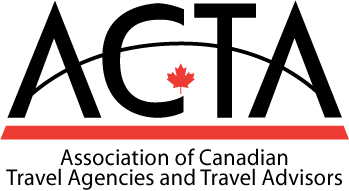Months To Draft Air Rights

NOTE:
While ACTA has been working on this file for a few years, last year ACTA formed the ACTA Canadian Transportation Act (CTA) Committee which includes ACTA board members and other key travel agency leaders across Canada. Our committee is currently conducting a jurisdictional scan including Passengers Bill of Rights in Europe and the USA, and identifying areas of agreement and/or concern with the legislation. Though Bill C-49 has not passed, we’re also researching and preparing possible recommendations from a travel agency and consumer perspective for the regulations to follow.
To date, Wendy Paradis and two board members have had a private lunch meeting with the Minister of Transport, Mark Garneau to give him some preliminary feedback, and on March 20, 2018, we’ll be travelling to Ottawa to present to the Senate’s Standing Committee on Transport and Communications. ACTA’s overall goal is to advocate for a reasonable approach to a Passenger Bill of Rights that offers travellers quality service, and at the same time enables Canada to continue to a build healthy and sustainable travel industry. ACTA will continue to keep members apprised on the movement of Bill C-49 and our advocacy efforts.
RELATED STORY
Marc Bourrie, Blacklocks.ca
Regulators will need months to draft air passenger regulations once a federal bill becomes law, the Senate transport committee was told yesterday. Cabinet has set a December 31 deadline to have compensation rules in place.
“We plan to launch consultations on these regulation within three days of Royal Assent,” said Scott Streiner, CEO of the Canadian Transportation Agency. Consultations would be complete “within three months”, he said: “We will move quickly.”
Bill C-49 An Act To Amend The Canada Transportation Act would mandate minimum compensation for travelers that suffer lost luggage, denial of boarding or flight delays. The bill requires that the Agency “establish clear standards of treatment for air travelers” and fix compensation rates.
“One of the key issues is simply travelers knowing what their rights are,” said Streiner. “There’s been a significant amount of attention under Bill C-49.”
Currently passengers must file individual airline service complaints with the Agency. Streiner said the number of complaints has risen sharply since Bill C-49 was introduced in 2017. The Agency last month received “close to 700 complaints, as many complaints in one month as we used to receive in a full year,” he said.
“Passenger protection regulations we would draft, if this bill is passed, would be binding,” said Streiner. “That’s the distinction.”
Airline executives in testimony last September 13 at the Commons transport committee appealed for limits to compensation. Similar regulations in the United States and European Union promise travelers payments of up to $800 for cancelled flights, $1300 for flight delays of more than four hours, and up to $1800 for lost or damaged luggage.
WestJet vice-president Mike McNaney told MPs the airline averages a profit of $8.43 per passenger on some 700 flights a day, and that compensation levels should be reasonable. “We have service failures, we recognize that,” said McNaney.
Complaints filed with the Transportation Agency against Air Canada and WestJet have totaled as few as 400 a year, though the two airlines combined say they carry 65 million passengers annually.
“We don’t need to be regulated to tell us to do the right thing,” said Lucie Guillemette, executive vice-president with Air Canada; “When we fail, when it is our fault – whether it is a training issue or we didn’t use common sense or good judgment – most often we are in contact with customers.”
“Having a clear set of standards for all carriers would be appropriate, without however imposing an undue financial barrier,” said Guillemette; “There is no doubt, when we carry 45 million passengers a year, issues will occur.”
